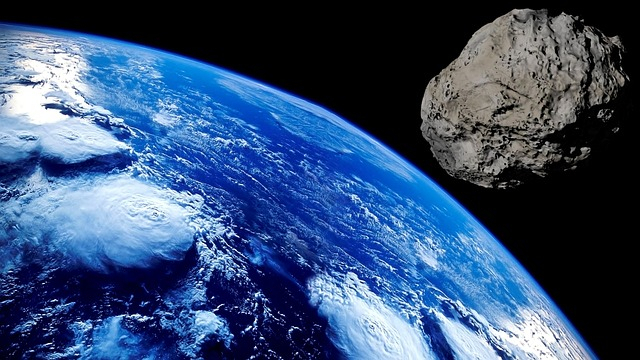
Despite believing that Earth could be completely destroyed by a major asteroid impact, a scientist said that these massive space rocks should still be admired because of what they can do for the planet's living organisms.
Like other scientists, cosmochemist Natalie Starkey believes that there are asteroids in space that are big enough to destroy the planet. However, instead of worrying about these kinds of asteroids, Starkey noted that they should be revered.
According to the scientist, the first asteroids that landed on Earth were most likely responsible for the emergence of life on the planet. The minerals and other chemicals commonly found in asteroids could have nourished the early organisms on Earth, which then led to their evolution.
For instance, scientific studies such as the one conducted by the European Space Agency's Rosetta spacecraft revealed that most of Earth's water came from icy asteroids. The ice from these space rocks helped fill Earth's oceans and lakes, allowing organic life on the planet to thrive, Space.com reported.
Due to their significant contributions to the development of life on Earth, Starkey noted that asteroids should be admired.
"Should asteroids be feared or revered?" Starkey said according to Express. "Well, my answer probably won't surprise you and it is, of course, that they should be revered."
"It is certainly possible that human existence on our planet may one day end because of a huge Earth-shattering impact, but we must remember that life might have only began in the first place because of very similar impacts early in Earth history," the cosmochemist added.
Aside from the minerals and chemicals that asteroids brought to the planet, the violent impacts they caused, especially the large ones, also helped in jumpstarting a new life cycle on Earth.
According to Starkey, a mass extinction was caused by an asteroid strike on Earth over 65 million years ago. The impact caused by the asteroid was so powerful that it led to a nuclear winter all over the planet.
The lack of sunlight due to the severe environmental conditions, combined with the explosion from the asteroid impact, wiped out over 70 per cent of all life on Earth. Despite the grim nature of the event, Starkey noted that the major impact allowed the remaining organisms on Earth to flourish.
"Even if comet and asteroid impacts weren't responsible for seeding the Earth with the ingredients for life, then their role in events such as the mass extinction 65 million years ago could be just one example of how they helped create an environment that allowed life like ours to develop," the scientist said.
"The end of the dinosaurs, and many other species, meant that niches were opened up for a range of mammals in different shapes and sizes to find a comfortable place on Earth, in a landscape that was suddenly free from competitors," Starkey added.









